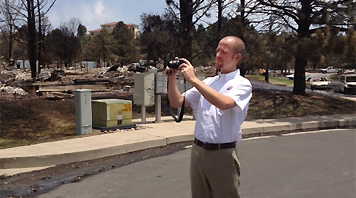|
RMIIA News Releases7951 E. Maplewood Avenue, Suite 110 Contact: Carole Walker, Executive Director Tennessee Flooding: A Flood Insurance Wake-Up Call—Reminding Colorado Homeowners & Renters that NOW is the Time to Consider Flood Insurance. May 6, 2010 – The devastating images of the historic city of Nashville and surrounding areas underwater is a stark reminder to Coloradans that they need to consider separate flood coverage to protect their property and personal belongings. Your car is covered for flood damage only if you purchase optional "comprehensive" coverage. Reports from Tennessee have already expressed concern that many homeowners affected by the flood do not have insurance, so they are left struggling with how to recover from the disaster. If there is a Presidential Disaster Declaration most of the funding will be in the form of low interest loans that need to be paid back. Flood insurance is not covered under a standard homeowners or renter's insurance policy, but it can be purchased through your insurance agent or company representative. Flood insurance must be in place 30 days in advance of the flood, so if you are concerned about the heightened risk, now is the time to check into flood insurance. "It's estimated that up to 25% of flood claims are filed in lower risk areas," says Carole Walker, Executive Director of the Rocky Mountain Insurance Information Association. "So, all homeowners, at least, need to consider purchasing additional flood coverage." Flooding is the most common natural disaster in the U.S. and during the past 10 years, the average flood claim has amounted to over $33,000. Flood insurance is funded federally through the National Flood Insurance Program (NFIP) and your community must participate for you to be eligible.
BEFORE THE FLOOD
DURING THE FLOOD
AFTER THE FLOOD
### Rocky Mountain Insurance Information Association is a non-profit consumer information organization. Affiliated with the Insurance Information Institute, RMIIA has been serving consumers and the media since 1952. |
|
303-790-0216 • 800-355-9524 • Contact Us • Legal Notice, Disclaimer & Terms of Use
Home • About RMIIA • News Room • P&C Insurance Industry • Auto • Homeowners • Business • Catastrophes • Agent Resources • Events & Education • Brochures

